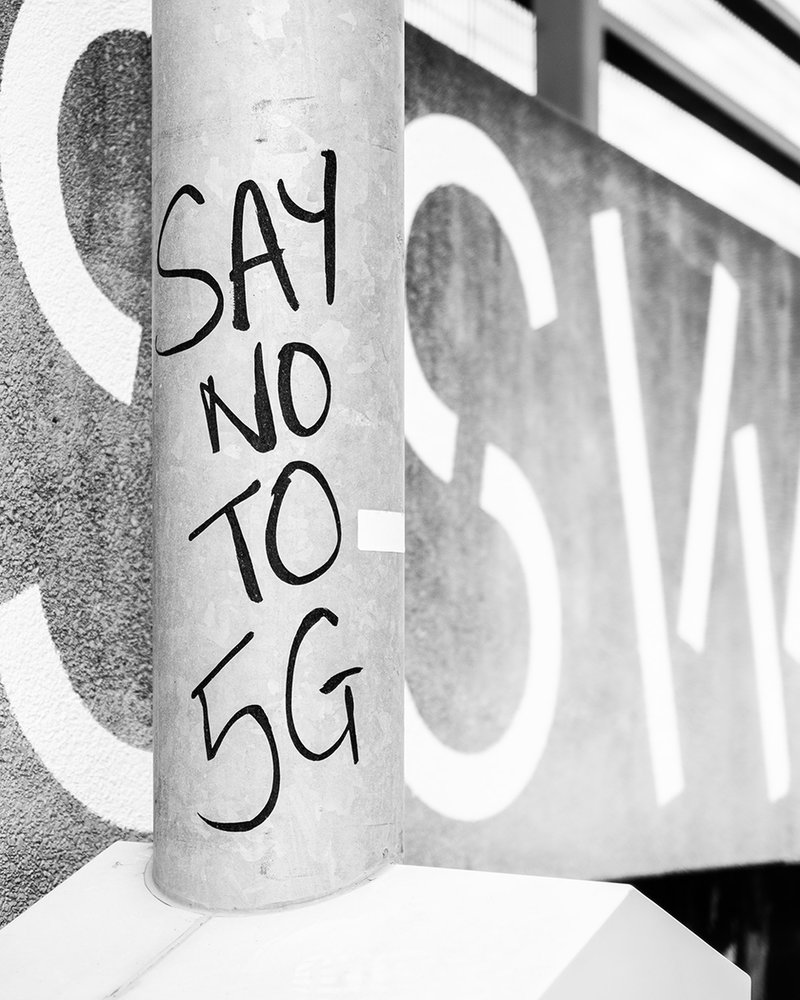Telecoms
Does Coronavirus Cause 5G?
Amid the pandemic, 5G has been hounded by baseless claims that it causes the coronavirus. But is the coronavirus accelerating the adoption of 5G? Luke Christou finds out

Fifth generation mobile networks, otherwise known as 5G, offer significant improvements in speed, latency, capacity, reliability and performance. In turn, the deployment of this technology will be fundamental in facilitating the rollout of further emerging technologies.
“A 5G-enabled future could allow doctors to not only interact with patients from around the world via high-speed video link, but could further empower them to perform actual operations and surgeries remotely through the use of VR [virtual reality] and remote-robotics applications,” Dr Paul Carter, CEO of independent network benchmarking firm Global Wireless Solutions, explains.
“Meanwhile, if 4G technology enabled people to arrange a ride from our phones and track its progress via a ride-sharing app, 5G has the power to bring the car to us without the need to even have a driver.”
Yet, as 5G begins to move from hype to reality, the coronavirus pandemic has had a polarising effect on opinions of 5G. Forcing businesses to become ever-more digital, the technology will prove vital in serving our remote workforces, yet the pandemic has also turned attention towards strengthening existing networks. And for some, 5G is thought to be the direct cause of the outbreak.

Image courtesy of Ehimetalor Akhere Unuabona on Unsplash
A new wave of 5G misinformation
In March, as coronavirus cases began to peak globally, conspiracy theories also began to gain traction that linked the outbreak with the development of 5G infrastructure. The claims suggested 5G signals weaken the immune system, leaving us susceptible to illness, or that the symptoms of coronavirus were actually the symptoms of 5G poisoning.
The World Health Organization (WHO), has confirmed that 5G does not cause coronavirus, stressing the fact that “viruses cannot travel on radio waves/mobile networks” and that “Covid-19 is spreading in many countries that do not have 5G mobile networks”.
Despite this, vandals have attacked phone masts in response to this spread of misinformation. Some 77 masts have been attacked in the United Kingdom, according to industry group Mobile UK, as reported by Business Insider.
“The majority of sites that have been targeted by vandals were likely either existing 3G/4G sites with limited 5G operation, or potentially even 3G/4G only sites.”
Thankfully, Carter says, these attacks are unlikely to have much of an impact on 5G deployment and adoption.
“The majority of sites that have been targeted by vandals were likely either existing 3G/4G sites with limited 5G operation, or potentially even 3G/4G only sites,” Carter explains.
“It’s also important to remember that while the vandalism we’ve witnessed is shocking, it is the work of an overwhelmingly small minority.”
A recent study carried out by GWS on public sentiment towards 5G found that over 53% of UK adults plan on buying a 5G device in the next three years, compared to just 15% that don’t ever intend to.
However, the longer the pandemic drags on, the greater risk there will be that public confidence could be shaken, subsequently impacting operator strategy and government policy, Carter says.
“That’s why authorities, operators and other consumer-facing entities must be quick to reach out to people to alleviate their misunderstandings, as lingering fears and uncertainties around 5G amongst the public could undermine its ongoing rollout.”
Will 5G deployment slow down or speed up?
There is little reason why the pandemic should have caused significant delay to the development and deployment of 5G infrastructure. Network engineers, designated as key workers in many countries, were able to continue working on networks throughout the lockdown period.
However, with offices closed, there has been an increased dependency on digital connectivity. This, coupled with the increased use of online leisure activities such as video streaming and online gaming, prompted fears that current networks would be unable to take the strain.
While most of the additional traffic was on fixed broadband, mobile networks also saw a significant increase in usage. According to the latest Ericsson Mobility Report, published in June, 16% of people say they have spent significantly more time on mobile broadband during the pandemic.
“Before the pandemic, the rollout of 5G was taking place in a piecemeal fashion, with the US and South Korea leading the pack,” Prashant Chamarty, an internet of things and telco specialist for SAS UK & Ireland, explains.
“Before the pandemic, the rollout of 5G was taking place in a piecemeal fashion, with the US and South Korea leading the pack.”
“This changed as the virus spread across the globe, catching businesses in every industry off guard and causing many to shift priorities to cope with increasing network demands.”
This has led to a “divergence of opinion” among telecommunications providers in how best to move forward.
“On the one hand, many companies are now focused on improving existing services to limit disruption, with network resilience taking precedence over the rollout of 5G,” Chamarty says.
“Conversely, others view the pandemic as an accelerant for adoption, holding the view that a faster rollout will ultimately be more beneficial to business.”
The Ericsson report shows that maintaining resilience and quality is consumers’ biggest expectation during the pandemic.
For Huawei, this has been the priority. However, the Chinese telecom giant believes that continuing to roll out 5G is the best way to ensure quality and resilience.
According to senior executive Eric Xu, maintaining focus on 5G would improve bandwidth and coverage, ensuring that everyone has access to mobile broadband coverage at all times.
A ‘significant delay’
Despite that, Huawei is ‘certain’ that 5G will be delayed in the UK, Europe, and further afield. This has become even more likely following the UK's decision to ban new Huawei technology from 2021 because it deems it to be a "high-risk" vendor.
PwC’s Where next for telecoms? report shares a similar view. Standards body 3GPP has delayed two critical updates to 5G standard, and network engineers have been largely restricted to carrying out essential repair work.
As a result of the pandemic, a “significant delay now appears inevitable”.
Furthermore, any initial delays are likely to hit telcos financially, limiting spent on 5G deployment and subsequently slowing the technology’s emergence.
Keeping out digital-first economy connected
In the immediate term, coronavirus may cause delay to the deployment of 5G, but it has also helped to highlight just how vital it will be in supporting our increasingly digital-first economy.
Traffic demands have significantly increased as a result of work from home practices and changes to our lifestyle as a result of lockdown measures — average use of fixed broadband increased by 2.5 hours per day during the crisis, while mobile broadband usage increased by one hour.
With 54% desiring remote working to become their primary way of working moving forward, according to IBM, and 75% desiring to work from home more following the pandemic, there will continue to be an increased demand.
“Covid-19 has impacted people in many ways,” Gunter Reiss, worldwide vice president of A10 Networks, says.
“Covid-19 has underscored the need and desire for higher speed mobile connectivity and related applications.”
“But all these factors have underscored the need and desire for higher-speed mobile connectivity and related applications.”
Research conducted by A10 Networks shows that businesses are aware of this need — one-third of businesses have already begun or will begin to utilise 5G in 2020, while a further 38% expect to begin within the next 18 months.
Source: A10 Networks
“The benefits of a fully deployed 5G network in terms of faster speed, greater reliability, reduced latency, and increased rates of critical data-transfer,” Carter adds, “should all stimulate this acceleration even more and unlock huge economic benefits, both in the UK and across the globe.”
Back to top